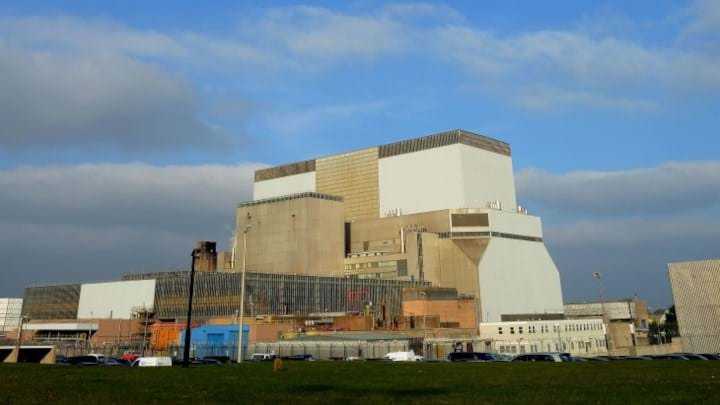Hinkley Point B nuclear power station closes

FRENCH-owned EDF Energy has formally switched off Hinkley Point B’s second reactor, a nuclear power station in the UK that has generated more electricity than any other during its 46 years of service. The closure of the plant at Bridgwater, Somerset, on 1 August, has prompted concerns that the cost of energy in the UK will have to rise.
Mike Davies, Station Director of Hinkley Point B, said: “This is a day of mixed emotions for all of us. We are justifiably proud of everything this station and its workforce have given to Somerset, and indeed the country, over decades of operations. The huge amount of electricity we’ve produced could have met the needs of every home in the South West for 33 years.”
The first of the UK's seven nuclear Advanced Gas-cooled Reactors, Hinkley has generated 311 TWh of electricity since 1976. At £50 (US$61) per MWh (allowing for estimates and price fluctuations), this equates to well over £15bn of value, EDF said.
Hinkley Point B had been expected to close in March next year, after EDF announced in 2012 that it would extend the generating life of the plant by seven years from 2016.
However in November 2020, the energy firm said it had made the "proactive decision" to move the nuclear power plant into the defuelling phase – the first stage of the nuclear decommissioning process – no later than 15 July 2022.
Nuclear-powered electricity makes up about 15% of the energy used every day, and a fifth of that came from Somerset.
Although there are plans for around a quarter of Britain's energy to be supplied from nuclear plants by 2050, the UK’s four remaining nuclear sites cannot increase their output in the meantime to make up the shortfall.
As using gas to produce electricity is the likely alternative, industry experts suggest this will result in unavoidable price rises.
"If you take a generator out of the market that's fully paid off, and doesn't have the gas price premium that replacement power will have or the carbon cost, then yes the wholesale price will rise," Henry Edwards-Evans, Editor at energy specialist S&P Global told the BBC.
Hinkley Point B’s retirement follows that of Hinkley Point A’s closure more than 20 years ago. During this time EDF has been trying to build a replacement, Hinkley Point C, which has now stepped up construction following the easing of pandemic restrictions.
Despite the advantages of producing zero carbon electricity from nuclear – according to EDF, Hinkley Point B was estimated to have prevented 107m t of CO2 going into the atmosphere – local campaigners are opposing the construction of the new nuclear site.
Local campaigner Roy Pumfrey, said that Monday’s closure should “not be a day to celebrate the life of [Hinkley Point B]…Rather, it's a day to mourn the production of radioactive waste that is going to have to be carefully and expensively managed and monitored for many generations to come."
Along with the two reactors at Hinkley Point C, EDF is also working on plans to build two new European pressurised reactors at Sizewell C in Suffolk.
Recent Editions
Catch up on the latest news, views and jobs from The Chemical Engineer. Below are the four latest issues. View a wider selection of the archive from within the Magazine section of this site.




